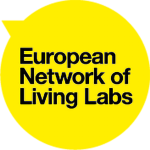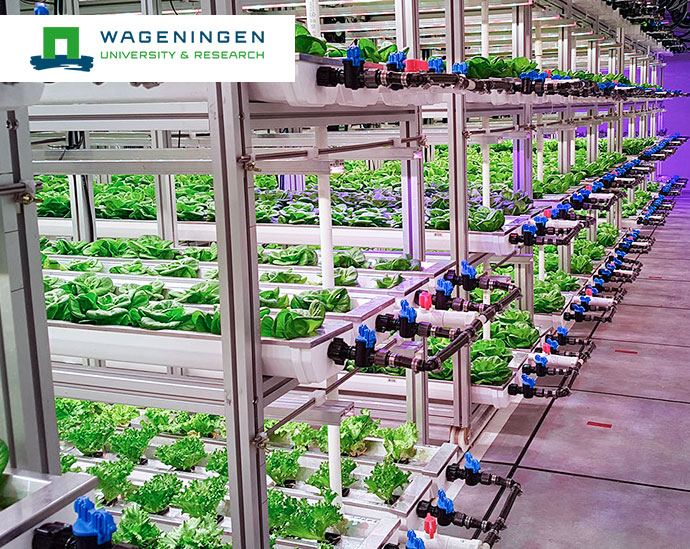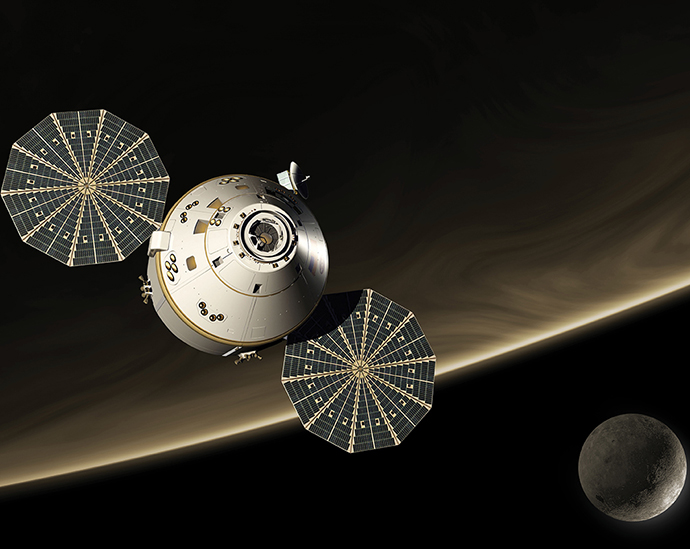
The official Living Lab membership of our farm (Grow Stars Institute Living Lab) is a great recognition for us, as this status is only awarded to innovative and forward-thinking facilities that excel in sustainable agricultural solutions. This means not only that we are part of a global research and development network, but that we can conduct cutting-edge experiments in a realistic environment on our farm. With Living Lab status, we have the opportunity to co-develop new methods, technologies and products that not only we, but the whole industry, can use to make a significant impact on the future of food production.

Collaboration with Wageningen University
In 2021, the Research and Development team of our farm was given a prominent place in a project funded by the Kingdom of the Netherlands.
Our goal was to create a revolutionary technology: to develop autonomous vertical farming solutions that will fundamentally change the future of agriculture. To do this, we worked with the world’s leading agricultural institution, Wageningen University and Research Institute, which is a major honour. The university is well known as a global centre for sustainable agriculture and food production, so the collaboration has given us not only prestige but also a huge scientific boost.
We have also coordinated our knowledge with experts from IO Crops Inc in South Korea to create a unique system through a combined effort. At the heart of this is an artificial intelligence-driven warning device that uses state-of-the-art camera technology to detect early physiological signs of plants, such as a wilting leaf or the early signs of chlorosis.
With this technology, more effective integrated crop protection and management strategies can be implemented to help preserve yields, increase yields and ensure more sustainable, healthier food production for the future.
Együttműködés a Wageningeni Egyetemmel
2021-ben farmunk Kutatás-Fejlesztési csapata kiemelt helyet kapott egy Holland Királyság által finanszírozott projektben.
Célunk egy forradalmi technológia megalkotása volt: önálló vertikális gazdálkodási megoldások kifejlesztése, amelyek alapjaiban változtatják meg a mezőgazdaság jövőjét. Ehhez a világ vezető mezőgazdasági intézményével, a Wageningeni Egyetemmel és Kutatóintézettel dolgoztunk együtt, amely komoly elismerést jelent. Az egyetem közismerten a fenntartható mezőgazdaság és élelmiszertermelés globális központja, így az együttműködés nemcsak presztízs, de óriási tudományos előrelépést is biztosított számunkra.
Emellett a dél-koreai IO Crops Inc szakértőivel is összehangoltuk tudásunkat, hogy egyesített erővel hozzunk létre egy egyedülálló rendszert. Ennek középpontjában egy mesterséges intelligencia vezérelt figyelmeztető eszköz áll, amely a legmodernebb kameratechnológiát használva képes felismerni a növények korai élettani jeleit, például egy hervadó levelet vagy a klorózis kezdeti jeleit.
Ezzel a technológiával hatékonyabb integrált növényvédelmi és termesztési stratégiák alkalmazhatók, melyek segítenek megőrizni a termést, növelni a hozamot és biztosítani a fenntarthatóbb, egészségesebb élelmiszertermelést a jövő számára
A common future for vertical farms and space exploration
Many crops have already been tested in space. Currently mainly for research purposes, but in the near future also for feeding humans. The crops that mankind will take with them on space expeditions and colonisations are already being grown today. These new plant varieties can rightly be called ‘space colonisation crops’.
Experiments with space colonisation crops not only serve to diversify food sources, but also ensure that astronauts have access to healthy and nutritious food during long-duration space missions. Our space colonisation crops, although grown in terrestrial conditions, are technologically very similar to the Veggie system used on the ISS.
The vegetables and grains grown in space that form the basis of our research are pak choi, wheat, cabbage, radish, lettuce, parsley, dill, basil, mizuna, romaine lettuce.



